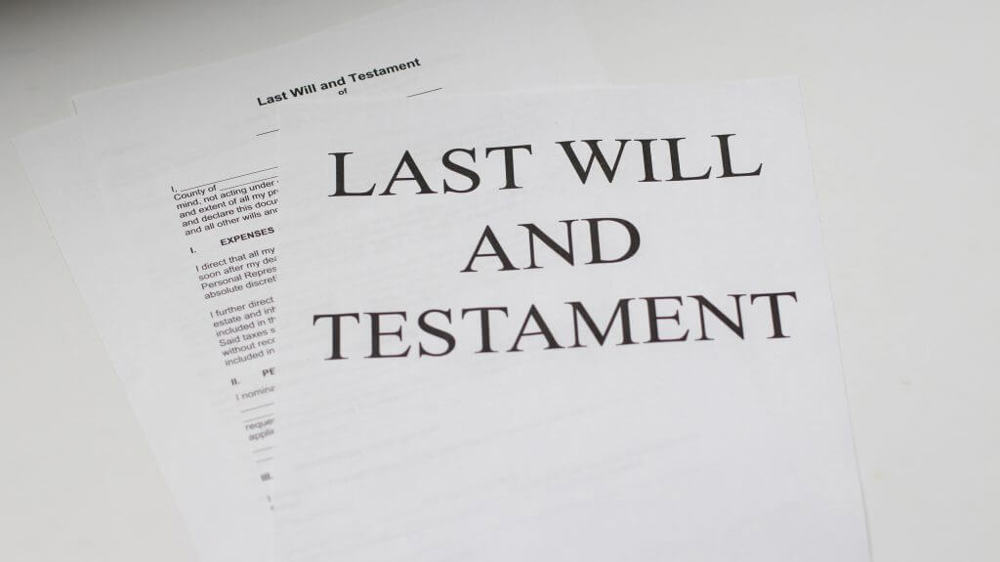Sooner or later, there will come a time when you need to think about what will happen to your money when you die. It's not easy but knowing what to expect can help you pass on your assets to the people, charities and causes that matter most.
Planning how to manage your money after you die is a big decision. That's why we’re here to help. We'll explain the basics and take you through where your money goes in common scenarios and tips for making a plan.
What is an estate?
Before we take you through the different scenarios, you should understand what's considered as part of your estate. Estates may bring to mind stately homes and land, but they include much more than property. An estate is your money, property and possessions.
They also include chattels, or everyday valuables at your home such as jewellery, computers, cars and other belongings. Your estate doesn't include debts (such as your mortgage or credit cards), money, property used for business purposes or investment properties.
Let's explore a few scenarios to help you understand what will happen to your money after you die.

You have a will
Writing a will gives you control over what happens to your money when you die. It can also help save the people you care about the time and stress of managing your affairs. Unless you want the government to decide where your money goes, writing your will guarantees that:
You choose an executor or a person to deal with your estate and the instructions you leave in your will.
- You choose who should receive your money, property and possessions.
- Your burial or cremation wishes are clear.
- Your Inheritance Tax liability could also be lower than if you didn't have a will.
Your loved ones will usually have to get probate to allow the executor the power to manage your estate after your death. This is called ‘Grant of probate' in England, Wales and Northern Ireland, or ‘confirmation' in Scotland.
They'll need to know the value of your estate to apply for probate. This process includes valuing everything from property to private pensions. They'll also review any gifts you gave in the last seven years before your death for Inheritance Tax liability.
Your executor will also need to find out how much debt you have and your share of jointly-owned assets to work out your estate's value. After all debts and taxes are paid off, your executor may then distribute your estate as specified in your will.
You don't have a will
Passing without a will is referred to as dying intestate or intestacy. Inheritance Tax owed on your estate may also be much higher because you've not made a will. Not having a will in place also means you have no say over who gets your money or property after you pass. This gives the government full control over who gets your assets and how much they'll get.
By law, this means that your assets will be divided amongst your loved ones, relatives or the government. The rules differ depending on whether you live in the UK, but there are common guidelines across regions:
- If you're not married or in a civil partnership: your partner isn't entitled to anything.
- If you're married: your spouse could inherit all or the majority of your estate, potentially leaving nothing for your children.
- If you have children or grandchildren: where you live in the UK affects how much they get.
- If you have no close living relatives: by the law of bona vacantia, your entire estate goes to the government or the Crown.
Not having a will in place prolongs the probate process, dragging it out from several months to years.
The GOV.UK website's online calculator can help you understand where your estate will go, depending on where you die in the UK.

You have debts
Outstanding debts don't disappear after you die. Instead, they're counted against your estate. This leaves the responsibility to pay off your debts with your named executor, or the person you've designated to manage your estate. If there's no named executor, the government will appoint a public trustee as your executor.
In the event that your estate isn't enough to clear your debts, they will be paid in the following order until the assets and money run out:
- Mortgages and other secured debts
- Income tax, council tax and other priority debts
- Credit cards, loans and other unsecured debts
The most important debts take priority if your estate isn't enough to cover your debts. Assets such as your car or home may be sold. If these measures still aren't enough, your estate may become an ‘insolvent estate', or bankrupt. At this point, creditors will most likely write off credit card and other debts.
You have one or more pensions
What happens to your state and personal pensions after you die depends on who you're leaving behind and your personal circumstances.
State Pension
Your partner could receive payments from your State Pension if you're married or in a civil partnership. Many factors affect their eligibility depending on what pensions you hold. These may include your National Insurance Contributions and whether they reached State Pension age before or after 6 April 2016.
If you're divorced or single and haven't claimed your State Pension when you die, up to three months of your basic State Pension may go towards your estate.
Personal and workplace pensions
Some workplace, personal and stakeholder pension schemes offer payments to surviving spouses and civil partners. Here are two potential outcomes:
Defined contribution pensions
Many schemes allow you to nominate a beneficiary so that any money left in your pot goes to them when you die. This will usually paid as a lump sum.
Defined benefit or final salary pensions
You're usually entitled to a form of life cover should you die whilst contributing to your workplace pension. Rules differ from scheme to scheme, but this could be a tax-free cash lump sum or a dependent's pension.
Not all plans and schemes offer benefits for dependents. Check with your provider to find out whether your loved ones qualify for payments.

You have insurance policies
When you die, your surviving family or executor needs to notify insurers of your death and provide a copy of your death certificate. Having a will in place ensures you have control over where your assets go – and that also goes for insurance policies. Naming beneficiaries guarantees that insurance payouts don't become a part of your estate.
If you die without a will, the government decides where your money goes. Usually, this will be your legal next-of-kin, such as your spouse or civil partner and children.
You have money or savings in the bank
Any money you hold in bank and savings accounts counts as part of your estate. When you die, your nominated executor will manage your money. This responsibility lies with an administrator if you haven't made a will.
The executor or administrator needs to notify the bank or financial institution of your death. They'll then offer them a copy of the death certificate and ID. This proof gives the bank a choice of either closing the account or freezing it. Every bank and financial institution is different – and it's up to them to decide whether to release your money to the executor or administrator.
If you have a joint account in the UK, this process is more straightforward. As you're both considered ‘joint tenants', the money will pass onto the surviving account holder after you die.
The surviving account holder may also have to deal with estate, income and Inheritance Tax liabilities. So, it's important to speak to a financial adviser if you want to reduce tax liability on your estate.

How financial advice can help you secure your estate
The guidance we've offered should help you understand what happens to your money and assets after you die. But, if your complex family or financial situation has left you with more questions, you should get regulated financial advice. Here are a few scenarios where it can be beneficial to seek advice:
- You share your property with a person that isn't your spouse or civil partner
- You have many family members who may make a claim on your will such as stepchildren or a former partner
- You wish to leave all or part of your estate to a dependant
- You have property or a permanent home outside the UK
- You are a business owner
Speaking to a financial adviser can give you the support and perspective you need to consider what should happen to your money after you die. Many advisers specialise in estate planning and can help you get your affairs in order, to support your loved ones.
A regulated financial adviser can also help you:
- Form a plan to grow your wealth
- Understand potential Inheritance Tax liability on your estate
- Determine which exemptions and reliefs are available
- Decide what wishes you would like carried out
Protect your estate and secure your loved one's futures.
Click the button below and we'll connect you to a local financial adviser in less than 60 seconds!



